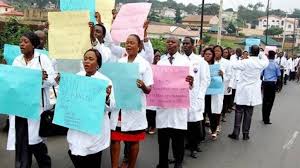To achieve Universal Health Coverage, UHC, a Professor of Medical Virology, at Lead City University, Prof. Rosemary Audu, has called for urgent strengthening of laboratory capacity across Africa.
Delivering her Inaugural lecture at the 17th inaugural lecture of the Lead City University, Ibadan, Oyo State, themed “Challenges and Prospects of Laboratory Diagnostics in Africa: Dismantling the Puzzle”, Audu highlighted the significant challenges facing laboratory diagnostics on the continent.
Audu who is also a member of the World Health Organization Africa Medical Devices Forum and the Director of the NIMR Biobank, noted that “Laboratory diagnostics are indispensable for disease detection, surveillance, control, and management.”
She pointed out that these services are currently encumbered by a multitude of challenges.
“These challenges include inadequate infrastructure, outdated equipment, insufficient and demotivated personnel, limited funding for healthcare, disruptions in the supply of reagents and consumables, inconsistent quality assurance measures, and weak regulatory frameworks.”
To address these issues, Audu made several key recommendations to governments and stakeholders, adding, “To ensure quality diagnostic services, we must prioritize the training and retention of skilled laboratory personnel through continuous education, certification programs, and mentorship.”
She also advocated the promotion of teamwork among laboratory medicine practitioners, stating, “This collaboration will ultimately benefit patients and improve health outcomes.”
Additionally, Prof. Audu highlighted the importance of innovation and commercialization of diagnostic products.
“Supporting local research initiatives focused on disease diagnostics and developing context-specific tools is vital.”
“We must create pathways for the commercialization of these products and encourage their use within Africa.”
“Another critical area of focus was the establishment of regional and national laboratory networks. Creating these networks will enhance information and resource sharing, standardization, and coordinated responses to health emergencies,” she explained.
Prof. Audu, however, urged the integration of digital health technologies into laboratory services.
“Leveraging digital health tools like telemedicine, electronic health records, and mobile diagnostics can significantly improve the efficiency and reach of diagnostic services,” she noted.
Prof. Audu reaffirmed the necessity of addressing the myriad challenges facing laboratory diagnostics in Africa.
She added, “Despite these obstacles, there are enormous opportunities to revolutionize clinical care and management”
“We must take advantage of technological advancements in point-of-care testing and rapid telemedicine to transform our diagnostic landscape.”
“It is essential to embrace public-private partnerships to improve laboratory infrastructure and health services,” she added.
Audu also called for innovative financing models, stating, “Encouraging local production of diagnostic supplies will enhance logistics and distribution systems, ultimately improving service delivery.”
“We must expand rural diagnostic services and reduce socioeconomic barriers to ensure that every citizen has access to the vital diagnostics they need,” she concluded.
SOURCE: VANGUARD NEWSPAPER





